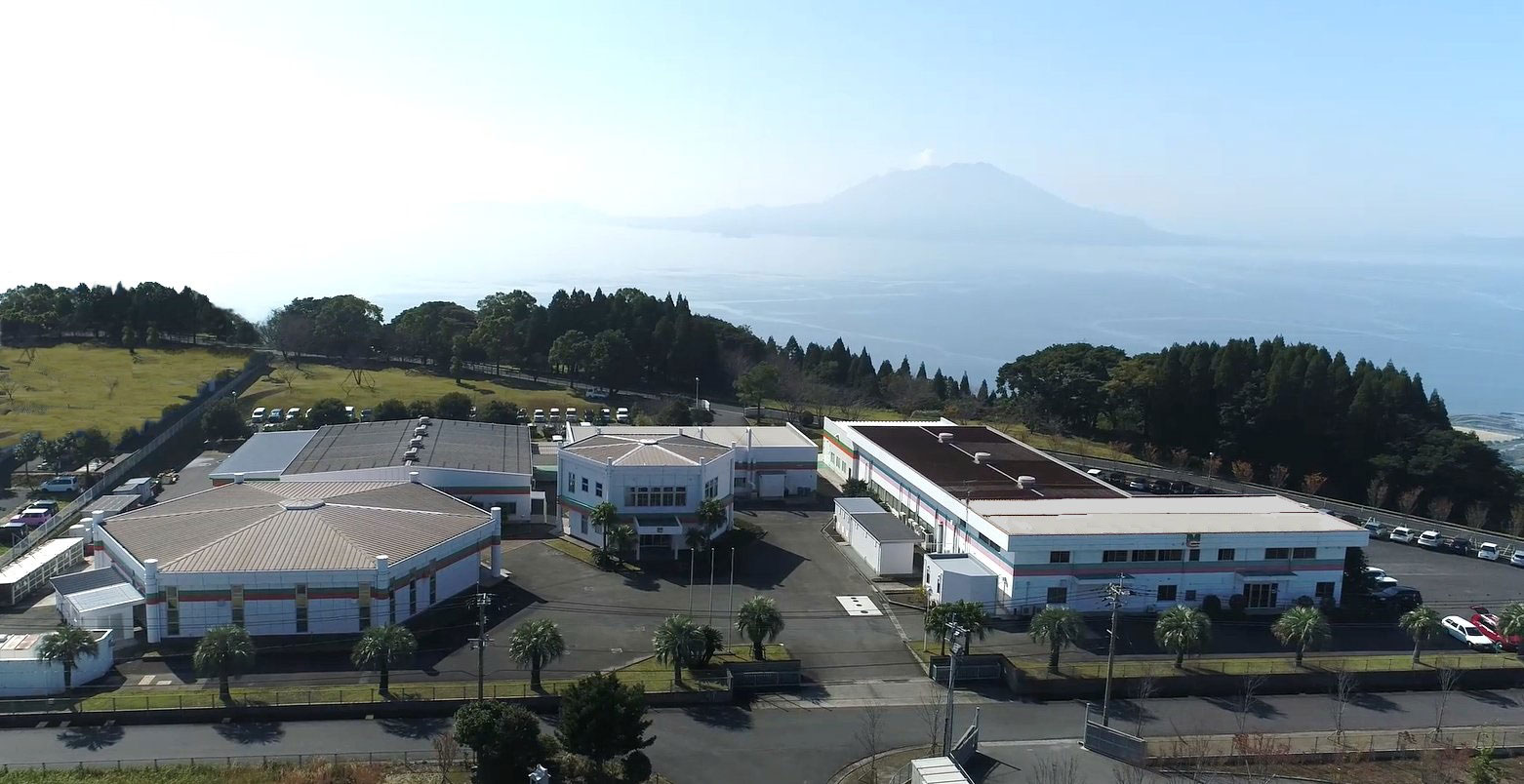
by Bruno Christen | Nov 27, 2023 | Customer Cases
Less machining time and increased productivity due to better cutting performance Micro-Cut, based in Kirishima City, Kagoshima Prefecture, specializes in high-precision machining of difficult-to-machine materials and complex shapes. With its strengths in advanced professional technology and thorough quality control, the company aims to become a world-class, cutting-edge manufacturing group. Micro-Cut’s management policy is to establish the world’s most advanced standardized machining technology and manufacture products that contribute to the development of its customers. Mr. Mitsuhiro Nishibeppu’s decision to change cutting fluids was motivated by the goal of extending tool life and fluid life. Mr. Nishibeppu, who is General Manager at the Development Department Group 2 in the Development Division of Micro-Cut, was also prompted to review the cutting fluid situation after receiving reports from workers that the cutting fluid emitted a bad smell and caused skin problems on their hands. Micro-Cut had been using a different company’s product, but a representative from a trusted trading company introduced them to Blaser Swisslube’s Synergy 735 and Blasomill GT 15. In cooperation with the team of Blaser Swisslube Japan, Mr. Nishibeppu conducted a one-month test of these two products. After seeing the overall positive test results, he decided to use Synergy 735 on two NC lathes that process parts for medical-related equipment and Blasomill GT15 on five NC automatic lathes that process parts for semiconductor manufacturing equipment. Since Micro-Cut started using Synergy 735, tool life has increased by 10%, and metalworking fluid life has increased to eight months from an average of six months previously. As for Blasomill GT15, Mr. Nishibeppu said: “We have seen a 15% reduction in machining time and increased productivity due to better cutting performance. Both products have been reported by operators to have eliminated the odor and hand irritation problems that existed in the past.” This whole initiative, led by Mr. Nishibeppu, has been well received within the company as it has contributed to improved profit margins and sales. Micro-Cut has an established internal award system that recognizes departments that have improved their operations and achieved positive results. “Development Department Group 2, which I belong to, was recognized and awarded for top performance,” explains Mr. Nishibeppu with a smile. Hizima Seiki...
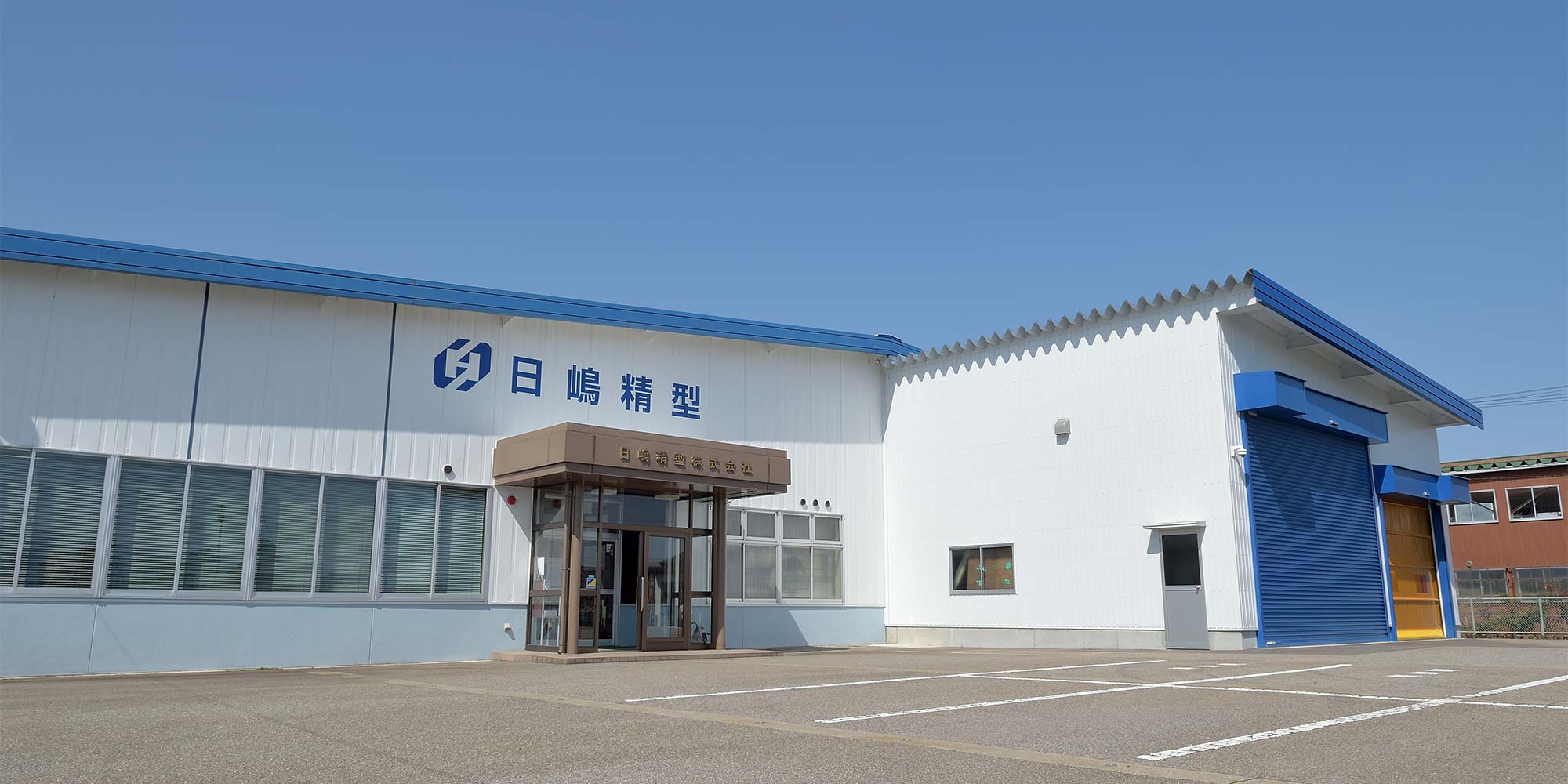
by Bruno Christen | Nov 15, 2023 | Customer Cases
Thanks to Blaser, hand irritation and bad smell are a thing of the past Hizima Seiki, whose main factory is located in Nanto City, Toyama Prefecture, is engaged in the design, manufacture, and maintenance of plastic injection molds. Since its establishment more than 70 years ago, the company has been manufacturing molds mainly for round products and has accumulated a unique technological know-how. Hizima Seiki specializes in multiple-cavity cap molds for products in the pharmaceutical industry, medical devices, and food. The company is constantly striving to improve the three levels of its operations: high-specification machines, operators who are proficient in using the machines, and the technical skills of the mold finishing craftsmen. The innovative company’s strength lies in the thorough dimensional control and fast delivery speed achieved through integrated production at its own factory. “Some workers’ hands became chronically rough due to unstable cutting fluid, and we suffered from a bad smell that spread throughout the entire factory. Especially in the summer and during the rainy season, the putrid smell was pervasive,” said Mr. Takaaki Kawai, Director and General Manager of the Production Department at Hizima Seiki. In order to improve the working environment at the factory, he decided to switch from the metalworking fluids they had been using for more than ten years to Blaser Swisslube products, which they had heard were less susceptible to deterioration. When Mr. Kawai shared the issues with Mr. Naohiro Shimaura, a Blaser Swisslube sales representative, he was recommended Synergy 735, which has a very low odor and minimal skin impact, and Vascomill 10, which has excellent lubricity and is gentler on the skin than mineral oil. Since the switch was made three years ago, the coolant has not caused hand irritation and odor. Synergy 735 was also beneficial in that it is clear and unobtrusive, making it easier to clean the machines. The improvement in the factory environment was made possible in large part by the cooperation of Mr. Shimaura. The study sessions held during the introduction of the system enabled a deeper understanding of the causes that lead to spoilage and enabled the company to manage the coolant more efficiently. During his in-depth monthly monitoring, Mr. Shimaura checked the condition of the cutting fluid one machine at a time. His advice on how to manage each machine has led to considerable improvements...
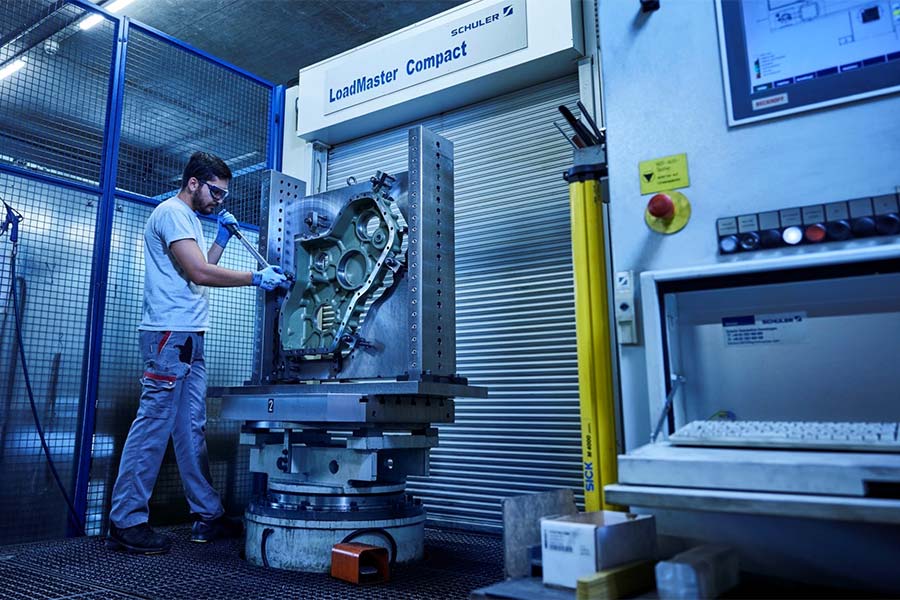
by Bruno Christen | Aug 24, 2023 | Customer Cases
RCM Estech & Blaser: “We’ve come further than we originally intended.” Sticky residue on parts and machines as well as a suboptimal coolant service life were problems that precision manufacturer RCM Estech AG in Burgdorf, Switzerland, reported when it contacted the metalworking fluid specialists at Blaser Swisslube. After a detailed analysis and a successful test phase, the company switched to the versatile metalworking fluid B-Cool 610. The results are impressive: The coolant life has more than doubled, stickiness is a thing of the past, and human compatibility has been improved on a lasting basis. In the future, RCM Estech, working together with Blaser, plans to introduce automated refilling and dosing of the metalworking fluid. RCM Estech AG became part of Estech Industries in 2008. The company is known for high-performance machining of high-strength materials on modern metal-cutting machines. Components for cars and engines, thin-walled parts with high shape and position tolerances, gears, and other precision parts are manufactured in the precision manufacturer’s shop buildings. On the one hand, this versatility is a real asset for RCM Estech, but also a particular challenge when it comes to choosing metalworking fluid. “From machining aluminum at high speeds to high-strength, forged steel, we face a massive range of materials to be machined. Likewise, the demands on the metalworking fluid are equally high,” emphasizes Dominik Böhlen, Safety Officer and Maintenance Manager at RCM Estech. The previous metalworking fluid used was unable to meet these high requirements. There was sticky residue on parts and machines, especially on the filters of engines and electrical installations. “The greater the evaporation, the greater the susceptibility to stickiness. Maintaining the service life of the metalworking fluid became a real problem,” explains Dominik. “This dragged on for a long time. We were forced to change our metalworking fluid at least once a year and, on some machines, even every six months.” Local expertise It was hardly surprising that those in charge at RCM Estech went looking for alternatives. They found the solution right on their doorstep: The headquarters of global metalworking fluid experts, Blaser Swisslube is less than a 15 minutes’ drive away. Dominik Böhlen: “We have a leading metalworking fluid specialist just around the corner, so it was obvious that we...
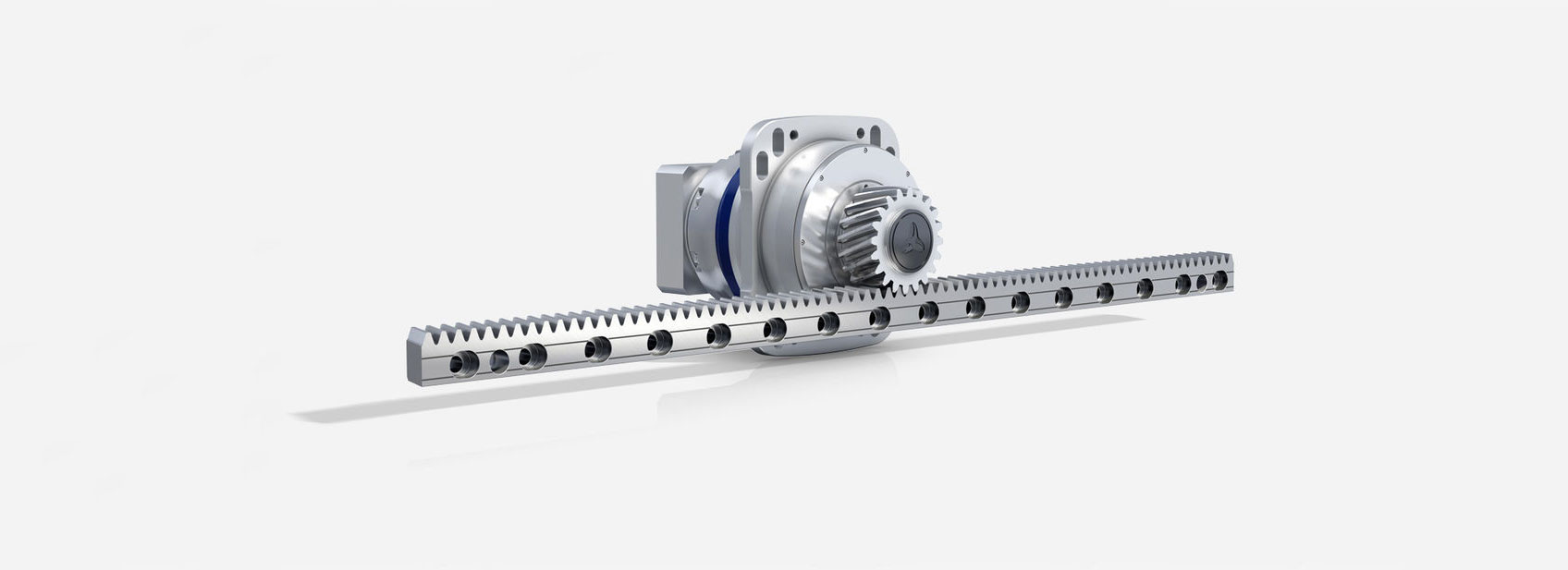
by Bruno Christen | Aug 16, 2023 | Customer Cases
Wittenstein scores a success with bactericide-free Blaser metalworking fluid Precise analysis of the manufacturing processes, constructive, solution-oriented discussions, and dedicated teamwork enabled Swiss precision manufacturer Wittenstein AG to increase productivity step-by-step, in cooperation with the metalworking fluid specialists at Blaser Swisslube. The bactericide-free metalworking fluid B-Cool GR 620 put an end to the skin problems experienced by employees in rack and pinion production. Vasco 6000 succeeded in putting aside the previously prevailing stability problems in the production of circulating beams. The future is constructive: Wittenstein aims to digitize metalworking fluid management in cooperation with Blaser Swisslube. Located in Grüsch, Switzerland, Wittenstein AG has been offering high-precision drives, controllers, regulators, and complete mechatronic systems from WITTENSTEIN SE for areas where maximum precision is key. The products are highly innovative and have an assured future. Employing more than 2,700 people, WITTENSTEIN SE is a global technology and quality leader that keeps setting new standards in terms of technical and economic efficiency. Rack and pinions for international use and planetary gear carriers for gearbox assembly in Germany are manufactured at the Grüsch plant in the canton of Graubünden. In 2019, those responsible at Wittenstein AG sought discussions with the metalworking fluid experts from Blaser Swisslube at Prodex in Basel, the leading Swiss trade show for machine tools. They discussed specific problems in the production of rack and pinion. “After we struggled with foam problems over a number of years, leading us to switch the metalworking fluid, the new product from a Blaser competitor caused severe skin irritations among employees. We consulted Swiss accident insurance company SUVA, which recommended that we use a bactericide-free metalworking fluid,” recalls Wittenstein’s Head of Technology Aldin Banovi. Focus on problem-solving Oliver Kössel, Managing Director of WITTENSTEIN AG, adds: “Our talks with Blaser centered on bactericide-free alternatives, which marked the start of an intensive exchange with Blaser’s sales department and laboratory staff. This resulted in an excellent, constructive process in which Blaser also involved the machine manufacturers, discussing ingredients and offering concrete suggestions. The focus was always on solving the problem.” A...
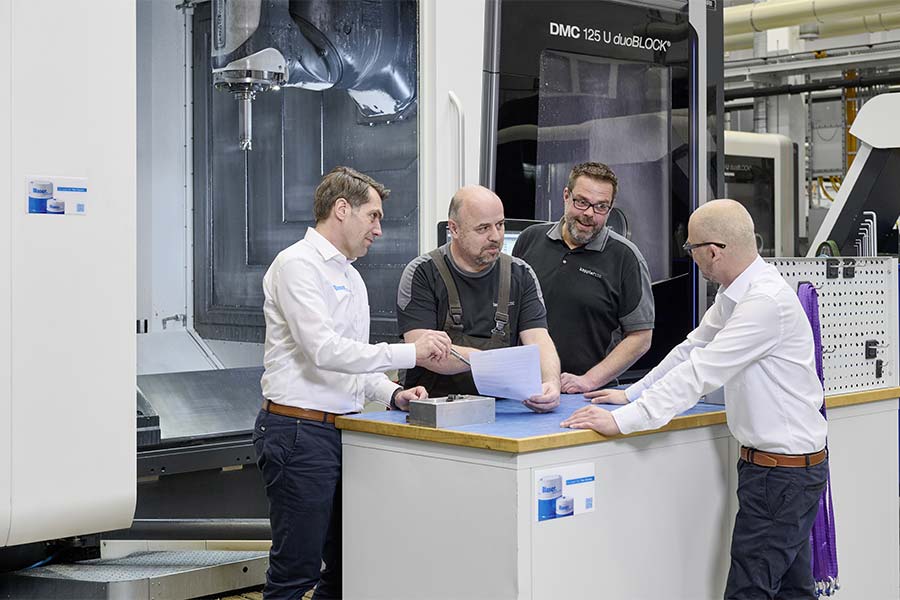
by Avery1Media | Jul 30, 2023 | Customer Cases
Kappler & Blaser: Working hand in hand to achieve a clean process in the production of complex electronics Kappler CNC is a high-tech company from Birkenfeld, in Baden-Württemberg, Germany, producing complex parts for demanding environments such as in chip production, as well as the aerospace and electronics industries. The challenges here are immense, not only in terms of precision, but also cleanliness – with cleanroom compatibility being a prime example. Kappler specialists are working in close collaboration with Blaser Swisslube’s metalworking fluid experts, as part of a comprehensive development process, to establish an ideal product for the specific production needs. A partnership geared to the future that is bearing fruit already. Kappler CNC, founded in 1934, is an innovative precision engineering production company located in Birkenfeld, in Baden-Württemberg, Germany. The family business, which is now being run by the family’s third generation, employs around 200 staff. The company originally produced bench drilling machines – but over the decades, Kappler has succeeded in progressively diversifying its production. Today, the high-tech company focuses on producing complex and challenging parts from aluminum and various stainless steels, for the chip and optics industries, aerospace and medical technologies, the energy sector, as well as mechanical engineering and electronics. Machine operator Mr. Müller in action. “The electronics segment is particularly demanding. Here, it is essential that the parts produced are cleanroom compatible. So it must be ensured that the parts can be optimally cleaned and are free of extraneous substances,” explain Kappler specialists Christian Huber, project manager, and Jürgen Klittich, responsible for tool purchasing and metalworking fluids. Mr. Klittich has worked for the company for more than 20 years – more than two decades in which Kappler CNC has been resolutely committed to maintaining its technological edge and growing its expertise. Jürgen Klittich: “Kappler strives to take new approaches and to achieve extraordinary things!” Kappler is pursuing one of these new approaches together with Blaser Swisslube: The company contacted the metalworking fluid specialists at Blaser in early 2021, with a specific problem in the particularly demanding area of machining components for EUV lithography systems. According to customer specifications in the electronics sector, an alternative to the oil-based metalworking...
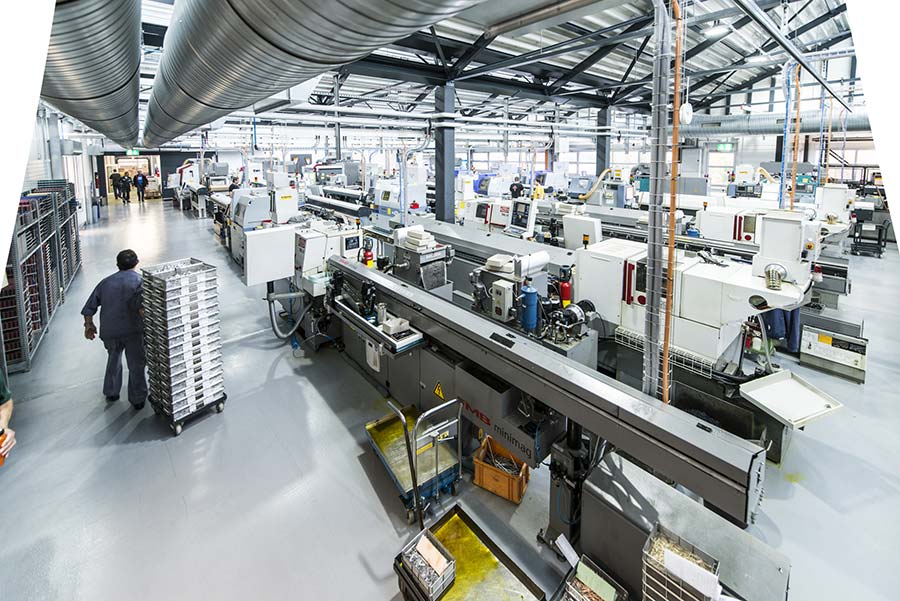
by Bruno Christen | Jan 9, 2023 | Customer Cases
Blasomill 15 as a Process Optimizer for Häni & Co. AG While analyzing potential ways to optimize processes, the decision-makers at the precision turned parts manufacturer Häni & Co. AG, Arch, Switzerland met up with the coolant specialists from Blaser Swisslube. The reason for this was contamination in the oil used, whose provider urgently recommended an oil change. After closely examining the processes together, Blaser Swisslube recommended using the high-performance cutting oil Blasomill 15 as a hydraulic oil. Today, the Häni team is delighted to report longer tool life, fewer rejects, minimized downtimes, greater process security, and considerable cost savings. View of the Häni & Co. production hall Häni & Co. AG, headquartered in Arch in the canton of Bern, employs 100 people and specializes in the manufacture of high-precision turned parts. The family business, founded more than 80 years ago, produces both small series and large-scale orders to the highest accuracy and quality. The experts at Häni often support their customers from as early on as the development phase, and have specialized expertise in materials science and manufacturing technology. The modern machinery allows Häni great versatility: all alloyed or unalloyed steels, copper alloys, aluminum as well as titanium and plastics are machined – no matter whether round, square or hexagonal material. The precision-turned parts are manufactured for customers in the automotive or medical technology industries, for example, but also in the electronics, aerospace, chemical industries and in telecommunications. When Rolf Vogt, Head of Quality Management at Häni, spoke with Blaser application engineer Martin Haas, the first thing they discussed was the oil change recommended by the manufacturer. This was because the oil currently used was contaminated. Since it had come into contact with tramp oil, the process had been significantly hampered in terms of both performance and stability. As part of a detailed on-site analysis, tool life optimization potential was also determined later on. Together, they examined the production process and formulated clear improvement goals: while topping up with fresh oil was necessary for complex parts up until now due to the poor condition of the oil, the sump life should be prolonged by ensuring a consistently high quality over a long service life through planning and monitoring. A longer tool life should reduce tool costs in the long term. In...







Recent Comments